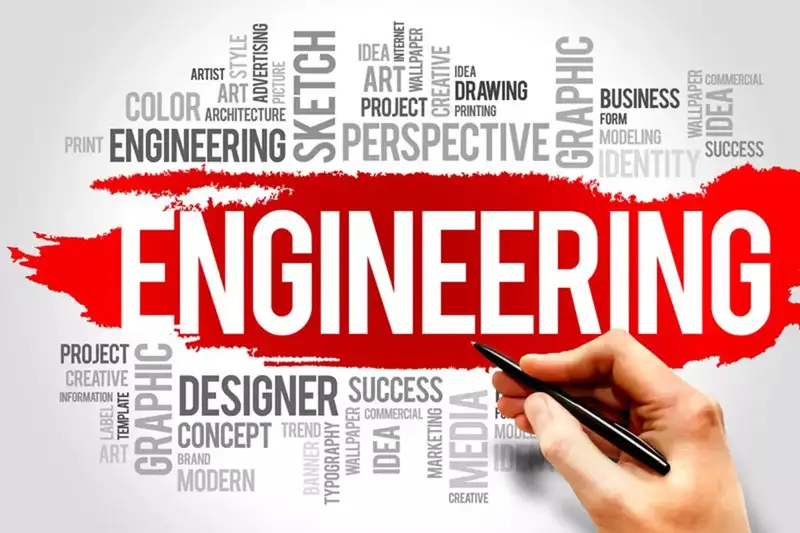Technology is evolving faster than ever before. From Generative AI to Industry 4.0, the pace of innovation has reached a point where even engineers struggle to keep up. But history shows us that every technological disruption—from the steam engine to the internet—first created uncertainty and later reshaped societies for the better.
The future of engineering will not be defined by coding alone. To thrive in 2030 and beyond, students must develop a blend of technical expertise, business acumen, and human-centric skills. Here’s a look at the skills that will prepare future engineers for the careers of tomorrow.
Why Go Beyond Coding?
Coding is important, but it’s no longer enough. Employers now seek engineers who can solve problems, think critically, design sustainably, and lead innovation. Generative AI and automation are reducing the need for repetitive technical tasks. What will make you stand out is how you use technology to create impact.
The Future Skill Set for Engineers
1. Articulating Skills
AI is powerful—but only if you know how to communicate with it. Writing clear, precise prompts and expressing ideas effectively will be essential. Whether in English or any other language, the ability to articulate thoughts, needs, and solutions will define success.
2. Domain Expertise
Coding is a tool. What matters is where you apply it. From healthcare and finance to civil infrastructure and aerospace, engineers with deep domain knowledge will be in demand. Generative AI will enhance domain expertise, not replace it.
3. Research & Analytical Skills
Future engineers must act like investigators—asking the right questions, evaluating data, and predicting market trends. Skills in impact measurement, market analysis, and problem validation will separate leaders from followers.
4. Design Thinking
Engineering isn’t just about technology—it’s about people. Design thinking brings a user-centric approach, encouraging innovative, sustainable, and practical solutions. It turns ideas into impactful realities.
5. Business Essentials
Engineers of 2030 will need business literacy. Concepts like SWOT analysis, stakeholder management, financial planning, and agile prioritization (like MoSCoW analysis) will make engineers more versatile and future-ready.
Core Technical Skills for 2030 Engineers
According to academic leaders, tomorrow’s engineers must combine subject knowledge with global certifications and future-focused expertise. Here are the critical technical skills:
- Artificial Intelligence (AI) & Machine Learning (ML): Building predictive, intelligent systems.
- Data Science & Big Data Analytics: Turning massive datasets into insights.
- Robotics & Automation: Designing autonomous machines and cobots.
- Internet of Things (IoT): Creating connected, smart systems.
- Cloud & Edge Computing: Managing distributed infrastructures.
- Digital Twin Technology: Virtual replicas for testing and optimization.
- Blockchain & Web3 Engineering: Secure, transparent, and decentralized solutions.
- Quantum Computing (Emerging): Unlocking next-generation processing power.
- Cybersecurity Engineering: Protecting critical infrastructure and digital systems.
- Low-Code/No-Code Software Development: Faster and more accessible app creation.
- AR/VR/XR Engineering: Immersive design for training and product development.
- Additive Manufacturing (3D Printing): Rapid prototyping and industrial production.
- Smart Manufacturing & Industry 4.0: AI-powered factories and real-time monitoring.
- Nanotechnology & Advanced Materials: Designing lightweight, durable materials.
- Space & Aerospace Engineering: Satellites, propulsion, and space exploration.
- Biotechnology & Bioengineering: Healthcare innovations and synthetic biology.
- Neuroengineering & Human-Machine Interfaces: Brain-computer integration.
- Underwater Technology: Exploration and sustainable resource extraction.
What This Means for Students
The jobs of 2030 will demand multi-skilled engineers—professionals who can:
- Speak the language of AI and machines.
- Apply expertise to solve real-world problems.
- Lead projects with both technical and business intelligence.
- Innovate with sustainability, creativity, and human impact in mind.
Interesting Reads
By embracing skills beyond coding, students can transform disruption into opportunity and position themselves as global leaders in engineering innovation.


